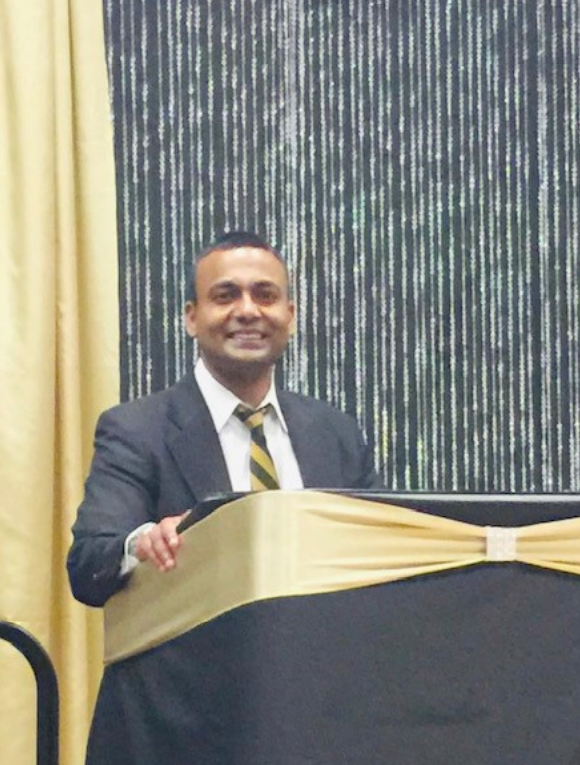 Sushant Raj (BHK ’95) works as a Notary Public who specializes in real estate transitions and estate planning. He has previously worked as an athletic director, academic counsellor, and physical education instructor.
Sushant Raj (BHK ’95) works as a Notary Public who specializes in real estate transitions and estate planning. He has previously worked as an athletic director, academic counsellor, and physical education instructor.
Sushant says, “I thought I would be teaching for the entire duration of my professional career and then retire. However, my interests and career journey evolved and I chose to work as a Notary Public, performing solicitor duties specializing in real estate purchases, sales, financing, leasing and estate planning.”
Sushant recalls his student days in KIN fondly. “The skills that I learned were invaluable – communication, time management, social and athletic skills were all enhanced through my life at UBC. I worked full time, so I could never commit to the varsity teams but I loved training with the UBC football and rugby players in the “Dungeon in the War Memorial.” Sushant remembers “back in ‘92, or ‘93, Dr. Gary Sinclair made me send him an email saying, ‘this was the way the academic and business world would communicate in the days ahead,’ and I thought this man must be dreaming! – well, I guess, that’s why he was the teacher and I was the student!”
Sushant began teaching as a physical education teacher and coach at St. George’s School for Boys while completing his education degree at UBC in 1997; “I loved the travel, the athletics, and the interaction with the students.”
Sushant is a valued mentor in the UBC KIN Mentorship Program. “Mentoring has been a very rewarding experience because I have learned about the hopes and fears of the current students looking to transition from academia to a professional career. I am approaching 10 years in the program and enjoying each year.”
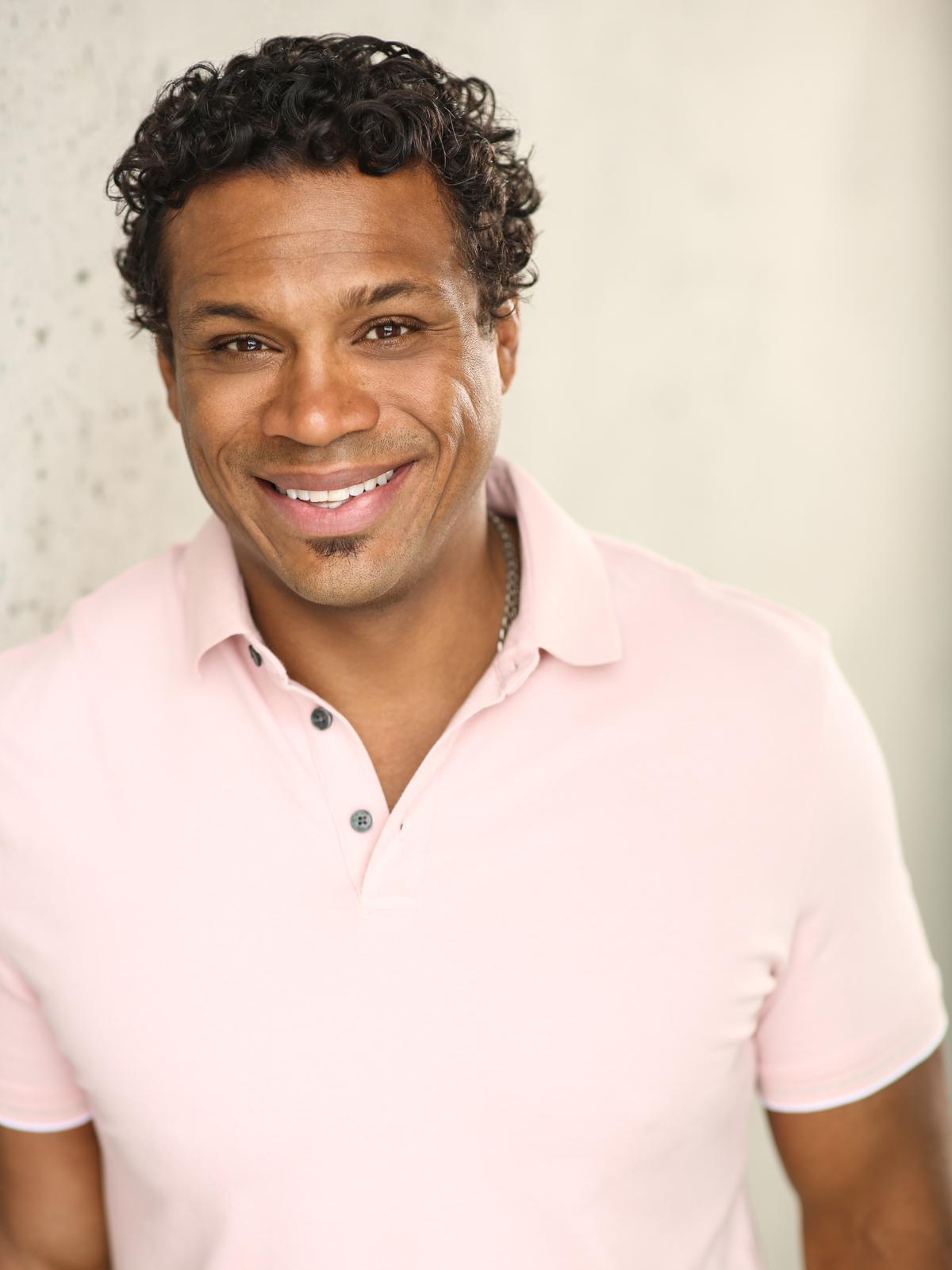 Joey came to UBC KIN as a transfer student from Langara College. “My background in sport led me naturally into this field. I played soccer, basketball, baseball, volleyball and rugby as a kid, so when I found out that I could study the body, activity and sports, I was eager to pursue it all!”
Joey came to UBC KIN as a transfer student from Langara College. “My background in sport led me naturally into this field. I played soccer, basketball, baseball, volleyball and rugby as a kid, so when I found out that I could study the body, activity and sports, I was eager to pursue it all!”
After he graduated from UBC, went to Sydney University in Australia for 6 months to play rugby in the club league. He went on to travel across more than 24 countries for 6 months. “It was one of the best experiences of my life. I bought a Eurorail pass, went to the train station and decided where I wanted to go at the moment. My travels took me from the South Pacific, to Western and Eastern Europe and throughout Asia.” Joey says, “I implore everyone, young or old, to explore the world. See what is out there. Try new foods. Go to a café and have a conversation with someone you don’t know.”
Once Joey returned home, he enrolled at BCIT to study International Trade and Transportation. Halfway through the program, Joey decided that after completing his diploma, he would obtain the certifications to become a firefighter. He has now been a firefighter with the City of Surrey since 2013!
Joey reflects on his time as a student at UBC, “my time at UBC taught me resilience, the importance of a lifetime of fitness, and how to critically think and understand the human body as much as I could. My degree gave me the knowledge to be as prepared as possible in pursuing my career as a firefighter.” Joey’s most memorable moments at UBC occurred during his Annual trips to CAL Berkeley with the Varsity rugby team. “We played in a home and away match called The World Cup every year and it was an aggregate of both scores. In 2005, my last year, we finally hoisted the Trophy at home!” Joey was most inspired by his rugby coach, Spence McTavish. “He played a huge role in not only my success on the rugby field, but also in life. He taught me to never give up, to always keep fighting.”
Joey is also a valued member of the KIN Mentorship program. He states, “I love being able to give back to the program that gave me the tools of learning for life. I look forward to doing it for many years to come, and sharing my passion for life, travel and happiness to students!”
For the full awards recipient list: Click Here.
Click on image to enlarge/download.
Awards:
- PRESIDENTIAL SCHOLARS MAJOR ENTRANCE SCHOLARSHIP
- THE PRESIDENTIAL SCHOLARS ENTRANCE SCHOLARSHIP FOR INDIGENOUS STUDENTS
- UNIVERSITY OF BC KINESIOLOGY / PHYSICAL EDUCATION ALUMNI SCHOLARSHIP
- THE UNIVERSITY OF B.C SCHOLARSHIP
Awards:
- TREK EXCELLENCE SCHOLARSHIP FOR CONTINUING STUDENTS
Awards:
- SCHOOL OF KINESIOLOGY INTERNATIONAL STUDENT SCHOLARSHIP
- OUTSTANDING INTERNATIONAL STUDENT AWARD
- BARBARA SCHRODT AWARD IN KINESIOLOGY
- DIANNA POPOWICH MEMORIAL SCHOLARSHIP
Awards:
- KILLAM GRADUATE TEACHING-ASSISTANT AWARD
- FACULTY OF EDUCATION GRADUATE, MASTERS AND PHD AWARD
Awards:
- FOUR YEAR FELLOWSHIPS
- ABORIGINAL GRADUATE FELLOWSHIP BRIDGE
- JOSEPHINE T BERTHIER AND WALTER C KOERNER FELLOWSHIPS
- CORDULA AND GUNTER PAETZOLD FELLOWSHIP
- NATURAL SCIENCES AND ENGINEERING RESEARCH COUNCIL (NSERC) CANADA GRADUATE SCHOLARSHIP MASTER’S AWARD
- NATURAL SCIENCES AND ENGINEERING RESEARCH COUNCIL (NSERC) CANADA GRADUATE DOCTORAL SCHOLARSHIP
- SOCIAL SCIENCES AND HUMANITIES RESARCH COUNCIL OF CANADA (SSHRC) GRADUATE DOCTORAL SCHOLARSHIP
- SOCIAL SCIENCES AND HUMANITIES RESARCH COUNCIL OF CANADA (SSHRC) CANADA SPORT PARTICIPATION RESEARCH INITIATIVE
- SOCIAL SCIENCE AND HUMANITIES RESEARCH COUNCIL (SSHRC) CANADA GRADUATE SCHOLARSHIP MASTER’S AWARD
- BC GRADUATE SCHOLARSHIP
- DONALD AND ELLEN POULTER SCHOLARSHIP
Awards:
- R. F. OSBORNE PRIZE
- JANIE AND HECTOR WRIGHT MEMORIAL SCHOLARHIP
- HEATHER LAWSON MEMORIAL SCHOLARSHIP
- ANNE D. TILLEY SCHOLARSHIP IN KINESIOLOGY
- CAPTAIN C.Y. WU SCHOLARSHIP IN KINESIOLOGY
- JOHN B SERVICE MEMORIAL PRIZE IN KINESIOLOGY
- MARGARET E. BARR BIGELOW Memorial Scholarship
- W. GORDON BRANDRETH PRIZE
- KINESIOLOGY UNDERGRADUATE SOCIETY PRIZE
- DR. RICHARD L. RAMSAY AWARD IN KINESIOLOGY
- WILLIAM B. MCNULTY KINESIOLOGY SCHOLARSHIP
- The WARD-ESSOF Scholarship
- WESBROOK SCHOLAR
- Robert F. OSBORNE MEMORIAL Award
Recipient of Outstanding International Major Entrance Scholarship and Outstanding International Student Award
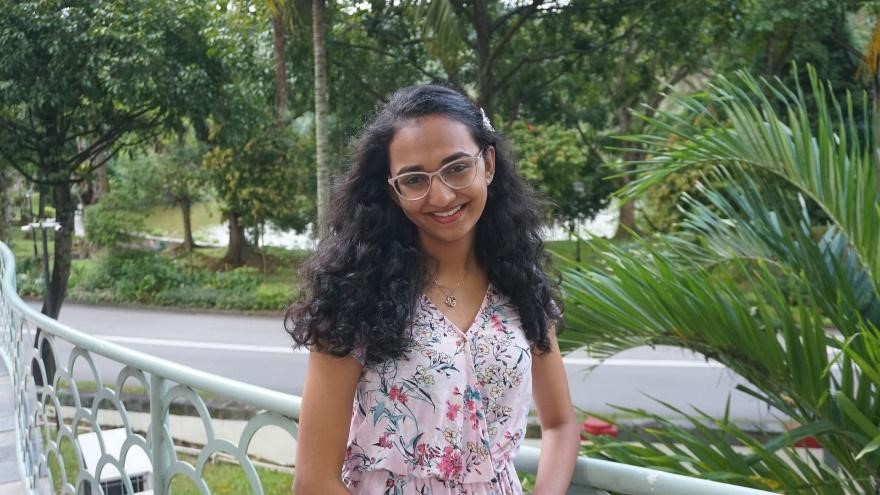 Suprita Anand is in the BKin program planning to pursue neuro-mechanical and physiological sciences. She aspires to be a “sports physiotherapist to help athletes and active people recover from their injuries so they can live their life to the fullest.” Suprita decided to study kinesiology when she encountered a physiotherapist who helped her sister recover from a serious Colles fracture. “She opened my eyes to the body’s endless capacity to heal,” states Suprita.
Suprita Anand is in the BKin program planning to pursue neuro-mechanical and physiological sciences. She aspires to be a “sports physiotherapist to help athletes and active people recover from their injuries so they can live their life to the fullest.” Suprita decided to study kinesiology when she encountered a physiotherapist who helped her sister recover from a serious Colles fracture. “She opened my eyes to the body’s endless capacity to heal,” states Suprita.
Suprita is the recipient of the ‘Outstanding International Major Entrance Scholarship’ and ‘Outstanding International Student Award for 2020.’ In order to achieve these awards, students must demonstrate strong academic achievement, engagement in the School, and the potential to make a scholarly contribution within their chosen field of study.
When asked how she feels about her KIN achievements, Suprita responds “I was extremely thrilled. I owe it to my teachers who guided, moulded and encouraged me to take the opportunities that came my way and share my experiential learnings with others. Living in different countries has helped me to be resilient, appreciate cultural diversity, adapt to various situations and build positive and trustful relationships.”
Suprita has indeed shared her experience with others. She has embarked on a journey of service to the community through volunteering in such places as Singapore, where she taught science to children; Jaipur, India where she taught young students the importance of education; and Ladakh, India, where she volunteered with a hospital to provide free dental and eye checks for the local community.
Suprita continues to be committed to contributing to the community in which she is currently living. She plays badminton, soccer and basketball competitively, and is “looking forward to playing a more significant role within the KIN sporting community.”
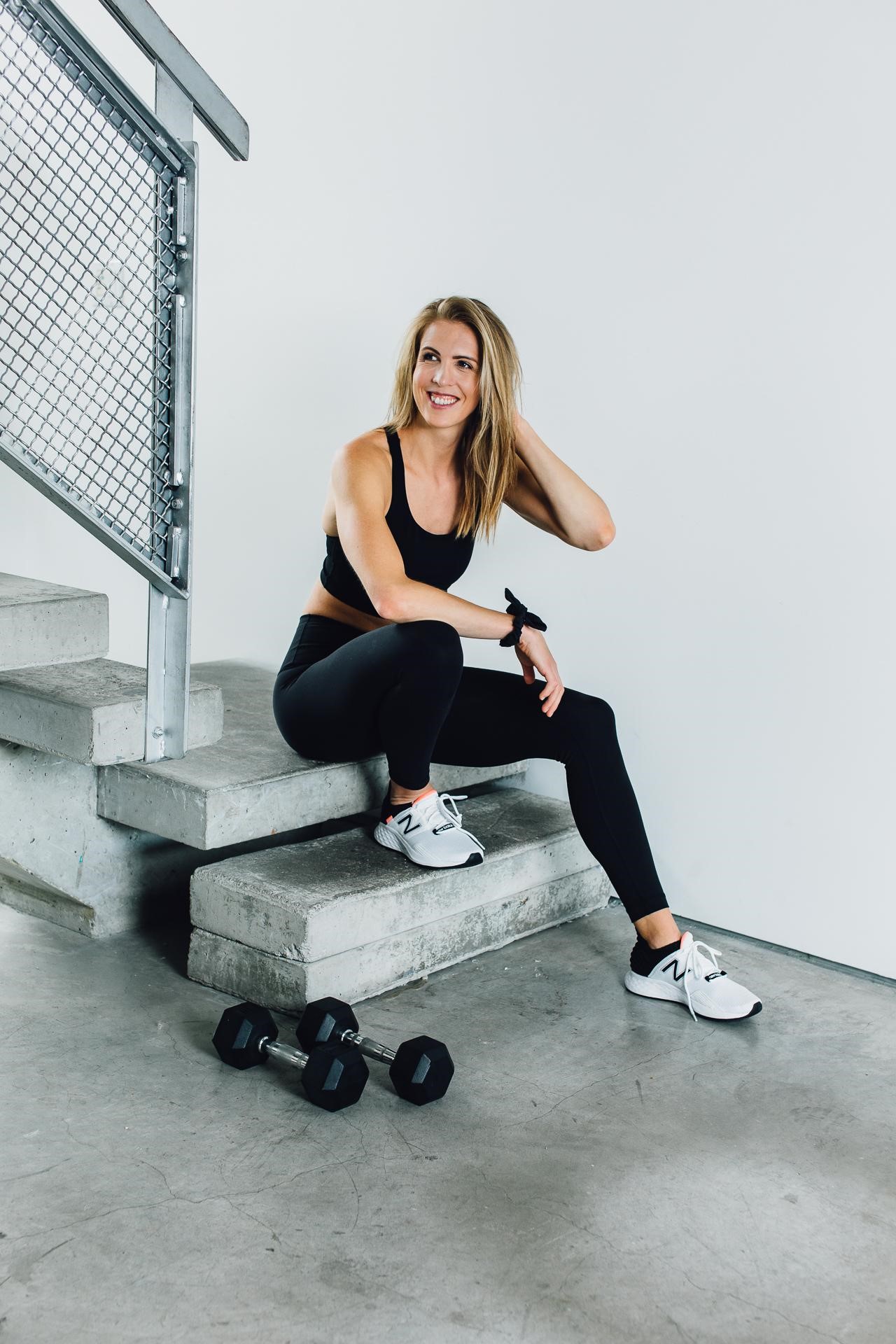 Jenna was a student who held down three jobs to help her get through university. Initially, Jenna thought she would teach children sport skills outside of a traditional organized sport environment. “I was always the kid who didn’t fit in in sports because I was lanky and uncoordinated and I also had ADD, so it was hard for me to focus in organized environments. I wanted to help children learn coordination and basic movement patterns in a different manner. She has since evolved this vision to working with adults who want to learn to become fit. She reflects, “I have had to teach myself how to be athletic so I find it quite easy to break complex movements down to teach people in an accessible way.”
Jenna was a student who held down three jobs to help her get through university. Initially, Jenna thought she would teach children sport skills outside of a traditional organized sport environment. “I was always the kid who didn’t fit in in sports because I was lanky and uncoordinated and I also had ADD, so it was hard for me to focus in organized environments. I wanted to help children learn coordination and basic movement patterns in a different manner. She has since evolved this vision to working with adults who want to learn to become fit. She reflects, “I have had to teach myself how to be athletic so I find it quite easy to break complex movements down to teach people in an accessible way.”
Jenna attributes her ability to think out of the box to her favourite KIN professor Dr. Karim Kahn, and believes that her psychology courses have been very helpful in understanding human behaviour. “I wouldn’t be able to do my job without my KIN background.” She fell into her career in her last year of university when she started to work at Innovative Fitness as a trainer. She relays, “I was terrified when I started! Even though I had specialized in workouts and training in Kinesiology for the past 4 years, I still was afraid to put it into practice. A girlfriend of mine had landed a job there as well, and she convinced me that I’d be fine – this fear seemed to be a theme of mine in my early days!” When the personal training studio started to reduce her hours, she quickly realized she wouldn’t have enough to pay her bills. She decided to quit. “It was at this point that three of my clients had asked me to train them in their homes and offices. Before I knew it, I had 10 more clients sign on over the course of the year. I had to figure out everything about running a business on my own because although I knew fitness, I had no idea about any of the marketing and operational side. Thank god for google!”
After three years Jenna began to dream of opening her own studio space. “I started putting the ducks in a row to do this. It took another two years to bring everything together. I opened my personal training studio in 2015 1:1 and 2:1. Another three years later, I started a group fitness program. This was like starting a whole new business and it has taken so much work to get it going!”
Jenna states that social media platforms like Instagram have been very helpful for marketing her business and for creating a client community and advises that “If you are just starting out, I cannot stress enough how important the use of Instagram is as a marketing tool. How you portray your brand online is very important because that is where people find information these days. Especially during something like the COVID pandemic.”
As a result of the pandemic, Jenna closed her personal training studio and pivoted her business online. “I would say that a large portion of my current success is because I have a strong online presence so people know where to find me. I feel very fortunate. I literally fell into my job after my degree and have been very lucky to be able to have grown it to this point because of my interest in marketing and sales. Jenna is now focused on starting a Podcast and YouTube channel for her business. “I am very focused on getting myself up to speed with technology because this is the way of the future. Jenna is very ambitious. Her goals for the future include building a global fitness brand, now that she is online, and states “I would also love to teach other students or trainers to do what I have done eventually.”
 Sushant Raj (BHK ’95) works as a Notary Public who specializes in real estate transitions and estate planning. He has previously worked as an athletic director, academic counsellor, and physical education instructor.
Sushant Raj (BHK ’95) works as a Notary Public who specializes in real estate transitions and estate planning. He has previously worked as an athletic director, academic counsellor, and physical education instructor. Joey came to UBC KIN as a transfer student from Langara College. “My background in sport led me naturally into this field. I played soccer, basketball, baseball, volleyball and rugby as a kid, so when I found out that I could study the body, activity and sports, I was eager to pursue it all!”
Joey came to UBC KIN as a transfer student from Langara College. “My background in sport led me naturally into this field. I played soccer, basketball, baseball, volleyball and rugby as a kid, so when I found out that I could study the body, activity and sports, I was eager to pursue it all!”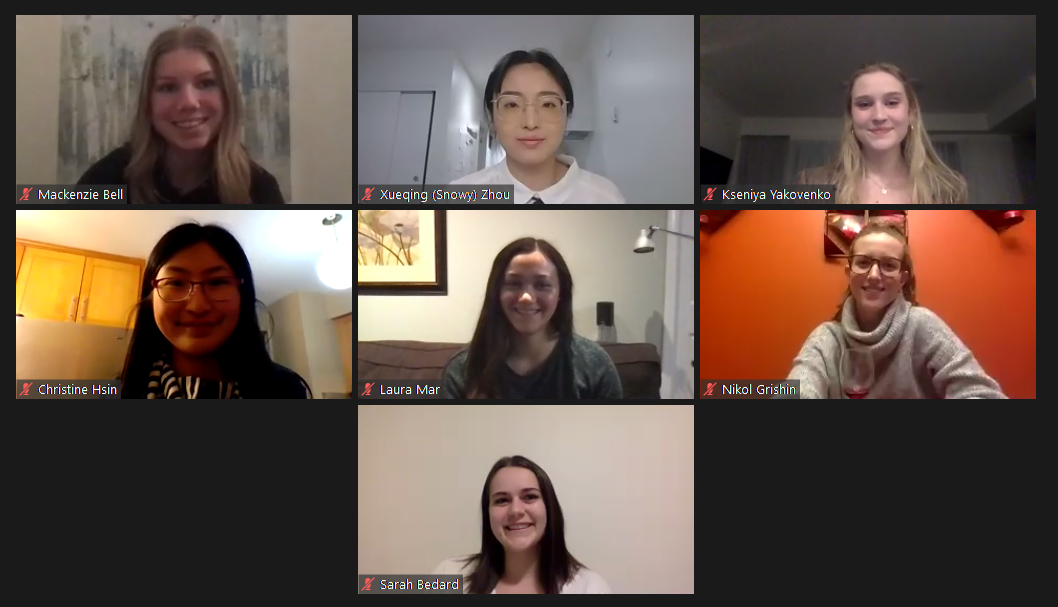
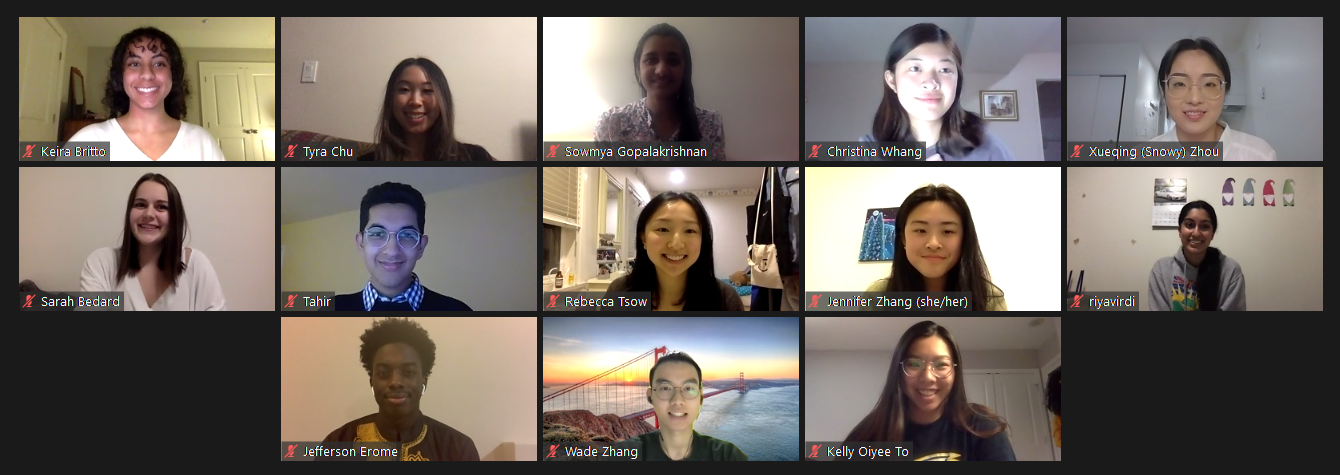

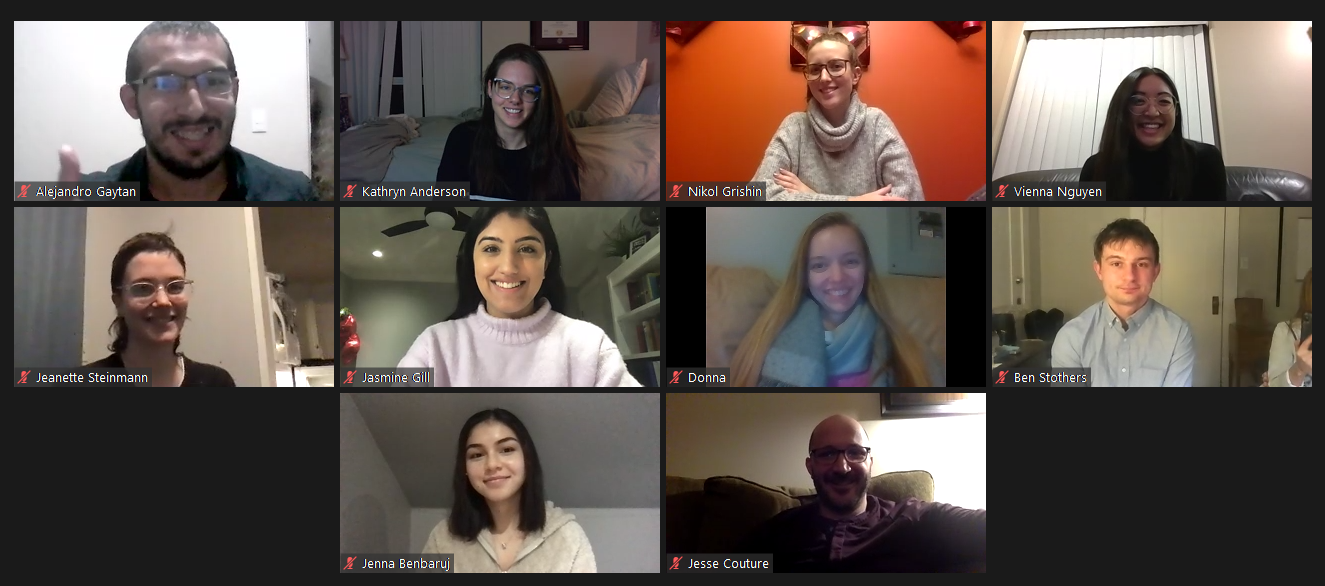
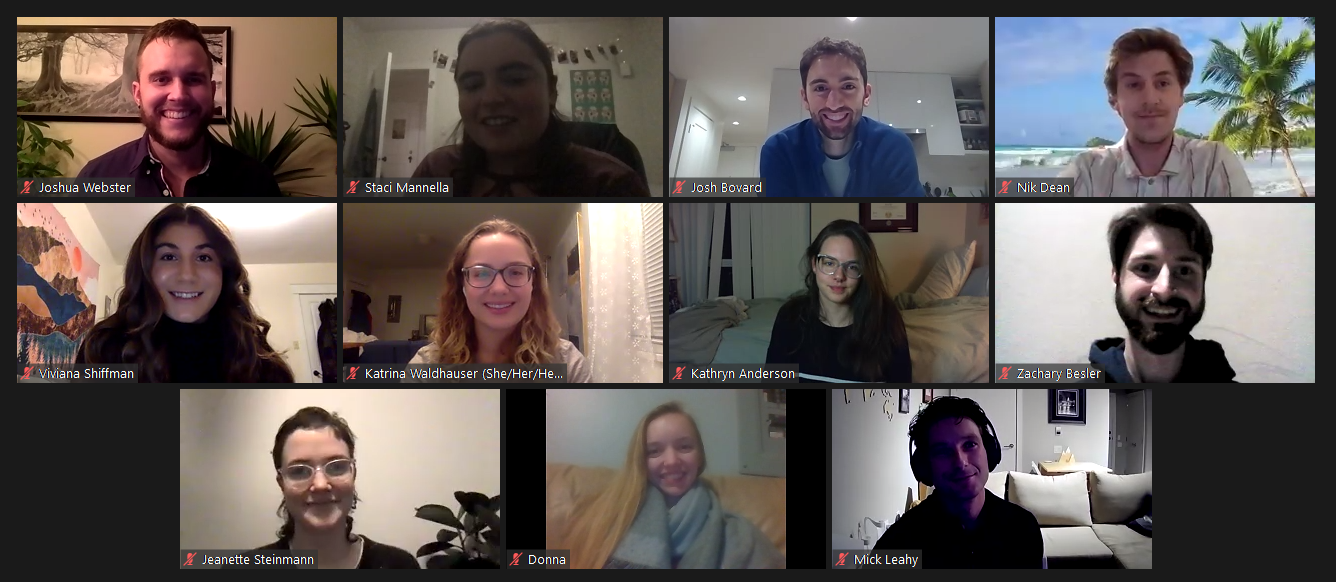
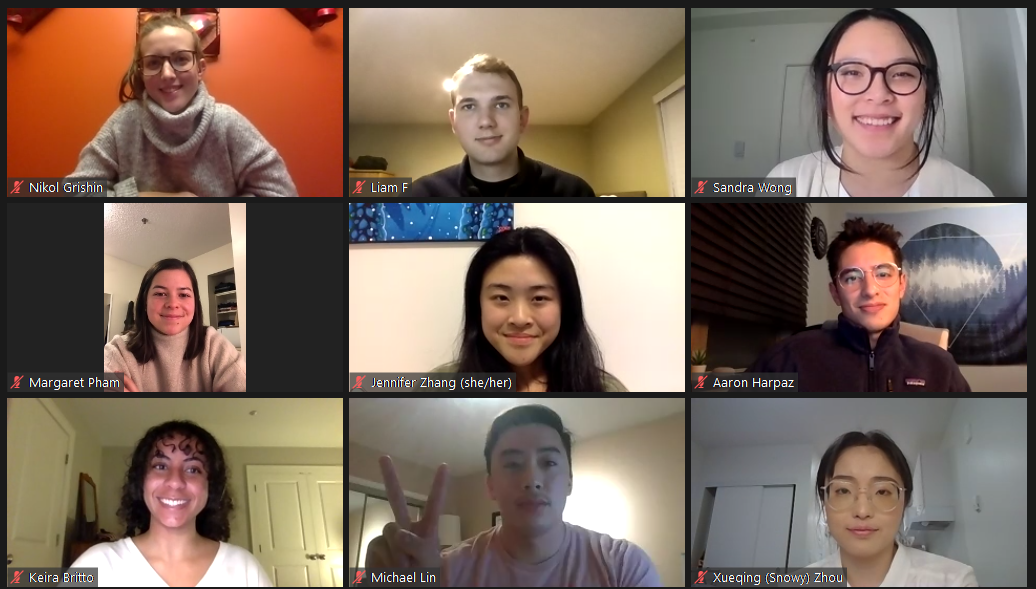
 Suprita Anand is in the BKin program planning to pursue neuro-mechanical and physiological sciences. She aspires to be a “sports physiotherapist to help athletes and active people recover from their injuries so they can live their life to the fullest.” Suprita decided to study kinesiology when she encountered a physiotherapist who helped her sister recover from a serious Colles fracture. “She opened my eyes to the body’s endless capacity to heal,” states Suprita.
Suprita Anand is in the BKin program planning to pursue neuro-mechanical and physiological sciences. She aspires to be a “sports physiotherapist to help athletes and active people recover from their injuries so they can live their life to the fullest.” Suprita decided to study kinesiology when she encountered a physiotherapist who helped her sister recover from a serious Colles fracture. “She opened my eyes to the body’s endless capacity to heal,” states Suprita. 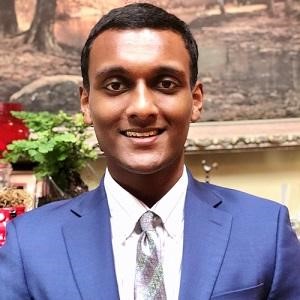
 Jenna was a student who held down three jobs to help her get through university. Initially, Jenna thought she would teach children sport skills outside of a traditional organized sport environment. “I was always the kid who didn’t fit in in sports because I was lanky and uncoordinated and I also had ADD, so it was hard for me to focus in organized environments. I wanted to help children learn coordination and basic movement patterns in a different manner. She has since evolved this vision to working with adults who want to learn to become fit. She reflects, “I have had to teach myself how to be athletic so I find it quite easy to break complex movements down to teach people in an accessible way.”
Jenna was a student who held down three jobs to help her get through university. Initially, Jenna thought she would teach children sport skills outside of a traditional organized sport environment. “I was always the kid who didn’t fit in in sports because I was lanky and uncoordinated and I also had ADD, so it was hard for me to focus in organized environments. I wanted to help children learn coordination and basic movement patterns in a different manner. She has since evolved this vision to working with adults who want to learn to become fit. She reflects, “I have had to teach myself how to be athletic so I find it quite easy to break complex movements down to teach people in an accessible way.”